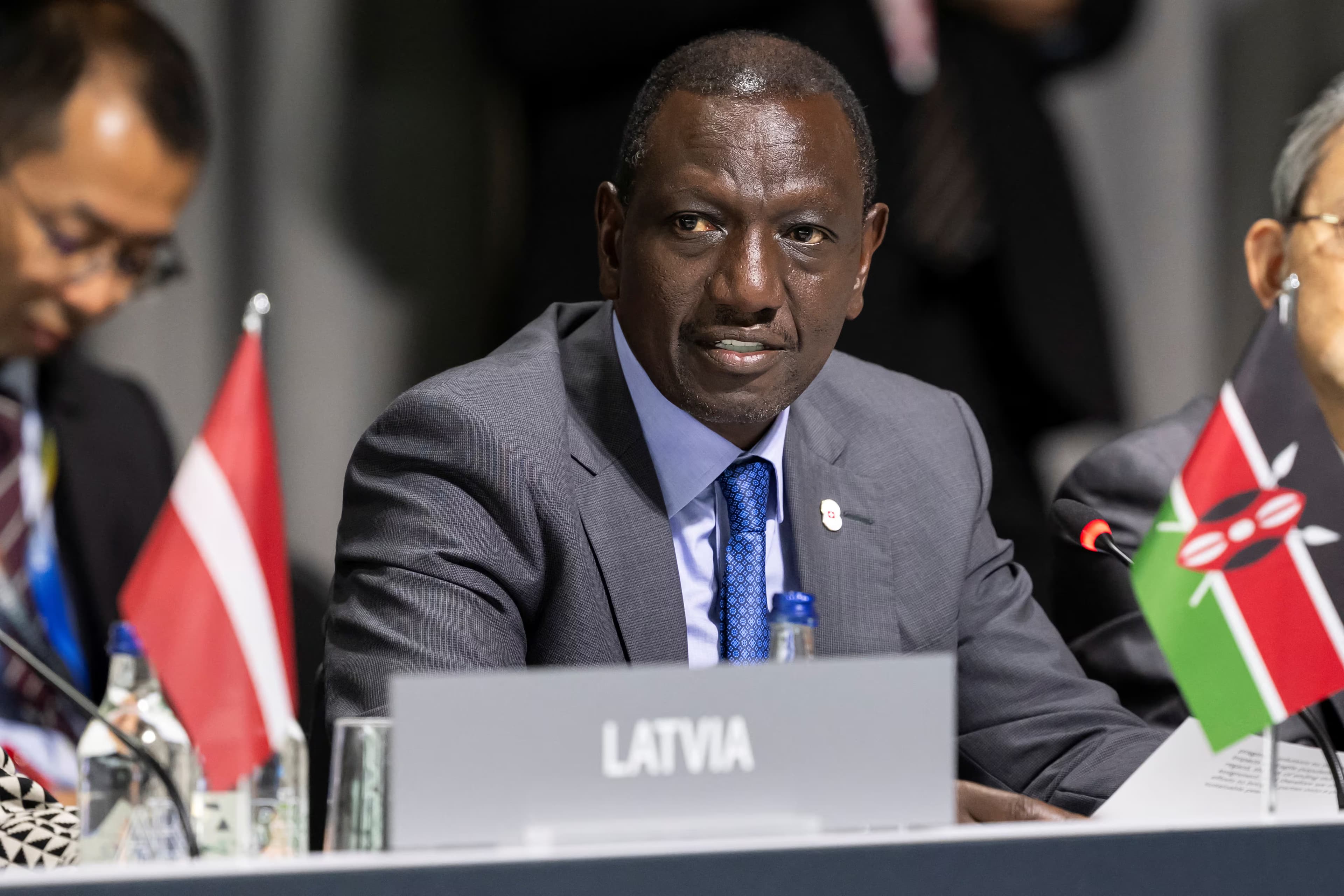We're loading the full news article for you. This includes the article content, images, author information, and related articles.
Prime Cabinet Secretary Musalia Mudavadi says Kenya will reopen talks with the IMF on a new financing programme after its previous US $3.6 billion deal lapsed; analysts note Kenya may need to repay debts and implement reforms before securing fresh funds.

Nairobi, Kenya — 2025-09-11 11:42 EAT. Prime Cabinet Secretary Musalia Mudavadi announced that the National Treasury will soon begin formal engagements with the International Monetary Fund (IMF) to negotiate a new financing program. The move follows the expiry of Kenya’s previous $3.6 billion IMF arrangement and the withholding of its final disbursement after unmet fiscal targets.
What happened now: During the quarterly diplomatic briefing, Mudavadi confirmed Kenya is preparing to engage with the IMF to secure funding aimed at stabilising the economy and backing priority development goals.
Why it matters: Without fresh funding, Kenya risks continued fiscal strain, high debt servicing costs, and weak capacity to deliver essential services. A successful programme could boost investor confidence.
Status: Developing — formal talks are expected to begin over the coming weeks.
Kenya’s previous IMF agreement was signed in April 2021, for about US$3.6 billion under the Extended Fund Facility (EFF) / Extended Credit Facility (ECF) framework. It officially expired in April 2025.
The last (ninth) review under that agreement was not completed, meaning Kenya forfeited the final disbursement of approximately $800 million that would have come if targets (budget deficit, revenue collection) had been met.
In parallel, Kenya is exploring other funding mechanisms including diaspora bonds, privatisation of some state assets, and bond refinancing to meet obligations and close immediate financing gaps.
There is also an ongoing effort to remove Kenya from the FATF grey list by improving compliance on anti-money laundering and counter-terrorism financing.
Constitution/Acts: The government’s borrowing, debt management, and fiscal deficit targets are governed under the Public Finance Management Act, and oversight by the National Treasury. Agreements with IMF must align with law and approved budgets.
Mandates:
• The National Treasury leads negotiations, sets fiscal targets.
• Central Bank of Kenya oversees monetary policy and inflation.
• Parliament must approve certain aspects including external borrowing and conditions in loan agreements.
What should happen next per law:
• Submission of formal request or negotiation documents to the IMF.
• Agreement on key conditionalities (e.g., fiscal consolidation, revenue reforms).
• Parliamentary debate or approval of resultant agreement.
• Ensuring transparency & accountability in use of funds.
Musalia Mudavadi, Prime Cabinet Secretary: Confirmed Treasury is preparing for IMF engagement to stabilise economy and sustain development priorities.
Analysts / Economic Experts: Caution that Kenya may need to address inherit unresolved obligations under the previous IMF program and demonstrate credible reforms before a new program is approved.
Development partners / investors: Likely watching closely for Kenya’s fiscal discipline, revenue mobilisation, and compliance with IMF conditionality.
|
Data Point |
Detail |
|---|---|
|
Previous IMF programme value |
US$3.6 billion (EFF/ECF) |
|
Expiry date of prior programme |
April 2025 |
|
Missed disbursement / final review |
~ US$800 million skipped because targets not met |
|
Alternative financing mechanisms |
Diaspora bonds, privatisation, bond and debt refinancing |
|
FATF grey-list status efforts |
Active engagement to remedy deficiencies in anti-money laundering / counter-terrorist financing compliance |
Financial risk: Continued delays in securing a new programme may worsen debt servicing pressure and risk rating downgrades.
Reform fatigue / public resistance: Measures required by IMF (e.g. revenue increases, austerity) may face backlash.
Conditionality constraints: IMF may demand strict conditions that could impact public spending or social programs.
Delays: Without speed, Kenya may lose favorable lending windows or further escalate borrowing costs.
The exact conditionalities IMF will demand for the new programme.
Whether the programme will be “funded” (i.e. IMF provides financing) or “non-funded / precautionary” (only a standby arrangement).
Duration of the negotiations and the expected timeline for implementation.
How this will impact domestic debt restructuring or repayment obligations.
What sectors will be prioritized under the programme.
April 2021: Kenya begins the $3.6 billion IMF Extended Fund Facility / Extended Credit Facility agreement.
July 2023: Programme extended with Resilience & Sustainability Facility (RSF) component.
April 2025: Programme expires; ninth review not concluded; final disbursement (~US$800m) forfeited.
September 2025: Mudavadi announces Kenya will engage IMF on new programme during Quarterly Diplomatic Briefing.
The composition and mandate of Kenya’s negotiating team with the IMF.
Whether IMF approves a new programme before 2027 or later.
How the government balances conditionality with social sector spending.
Market reactions: investor confidence, interest rates, and foreign exchange stability.
Keep the conversation in one place—threads here stay linked to the story and in the forums.
Sign in to start a discussion
Start a conversation about this story and keep it linked here.
Other hot threads
E-sports and Gaming Community in Kenya
Active 9 months ago
The Role of Technology in Modern Agriculture (AgriTech)
Active 9 months ago
Popular Recreational Activities Across Counties
Active 9 months ago
Investing in Youth Sports Development Programs
Active 9 months ago